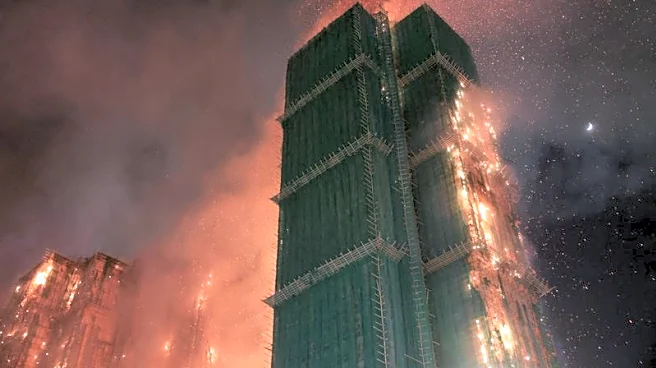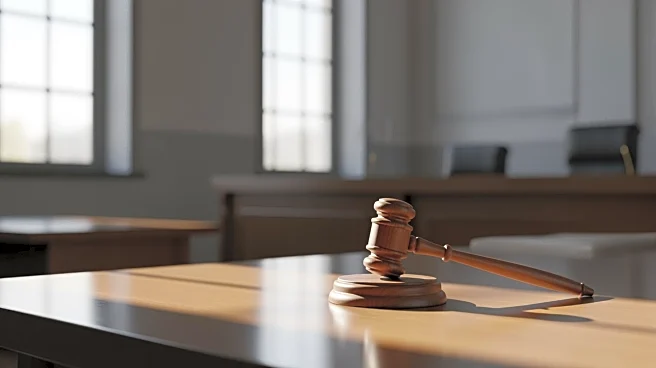By Greg Torode and Antoni Slodkowski
HONG KONG/BEIJING (Reuters) -A huge fire still burning in a Hong Kong high-rise apartment complex that has killed at least 55 people with almost 300 missing poses the
biggest test of Beijing's grip on the city it has transformed since the mass pro-democracy protests of 2019.
Under sweeping legislative changes, pro-democracy voices and other critics have been silenced and elections limited to “patriotic” candidates, with the next legislative council poll set for December 7.
The fire struck as Hong Kong braces for the sentencing of media tycoon Jimmy Lai - the most prominent of hundreds of pro-democracy figures and activists facing lengthy jail terms under national security and protest-related charges.
"I think Beijing is attaching great importance to two issues - number one, how will the government handle this tragedy? And secondly, will we see a changing perception of the citizens on the Hong Kong government," said Sonny Lo, a political scientist who has written several books on Hong Kong politics.
"The government has done well on national security, but national security includes a human security dimension."
The leadership of both the Hong Kong government and China's Communist Party moved quickly to show they attached utmost importance to the tragedy, with police targetting the construction company in charge of the renovations.
Hong Kong's sky-high property prices have long been a trigger for discontent and the tragedy could stoke resentment towards authorities despite their efforts to tighten political and national security control, analysts said.
From faulty fire alarms to workers smoking cigarettes and the risks of traditional bamboo scaffolding, many residents questioned whether risks were ignored and safety systems installed and operational.
As they huddled in shelters, some criticised what they saw as negligence and cost-cutting as a cause of the fire, echoing similar sentiments online.
Around 10 p.m. on Wednesday night - with flames still shooting out of windows - Chinese President Xi Jinping in Beijing urged an "all-out effort" to extinguish the fire and to minimise casualties and losses, according to state media reports.
Xi "expressed sympathy to the families of the victims and those affected by the disaster" and "attached great importance to the accident and immediately sought updates on the rescue efforts and casualties."
Four hours later, Hong Kong leader John Lee held a news conference after touring shelters for survivors of the blaze.
Some 4,600 people live in the complex's eight towers, seven of which caught fire.
"The priority is to extinguish the fire and rescue the residents who are trapped," Lee said. "The second is to support the injured. The third is to support and recover. Then, we'll launch a thorough investigation."
But at 5:54 a.m., only three hours after Lee's news conference and before the fire was fully under control, police announced the cause of its spread and said three officials from the construction company had been arrested.
As well as the towers being covered with sheets of protective mesh and plastic that may not meet fire standards, some windows on one unaffected building were sealed with a foam material that had been installed by a construction company carrying out maintenance work, police said.
"We have reason to believe that the company’s responsible parties were grossly negligent, which led to this accident and caused the fire to spread uncontrollably, resulting in major casualties," said Eileen Chung, a Hong Kong police superintendent.
Three men from the construction company, two directors and one engineering consultant, had been arrested on suspicion of manslaughter over the fire, she added.
QUESTIONS OF ACCOUNTABILITY
While protests are relatively tightly controlled in Hong Kong, a full range of online forums remain accessible and are likely to offer an early barometer of the public mood.
Analysts say public anger and concern may spread beyond the construction firms to the government's fire safety and building regulators and pressure is likely to build for extensive and open investigations into what happened.
Traditionally, the Hong Kong government has staged open inquiries into large-scale tragedies, often headed by an independent judge.
One comparison raised by experts is a commission of inquiry into a fire in a Kowloon commercial building that killed 41 people in 1996, a year before the handover of Hong Kong from Britain to China.
That inquiry sparked new building and fire safety laws and regulations. But it may no longer be enough.
"I believe we need to seriously review fire safety and site safety management across the entire industry, including government oversight," said Chau Sze Kit, chairman of the Hong Kong Construction Industry Employees General Union.
(Reporting by Greg Torode in Hong Kong and Antoni Slodkowski in Beijing; additional reporting by Clare Jim, David Lague and James Pomfret in Hong Kong; Editing by Kate Mayberry)









